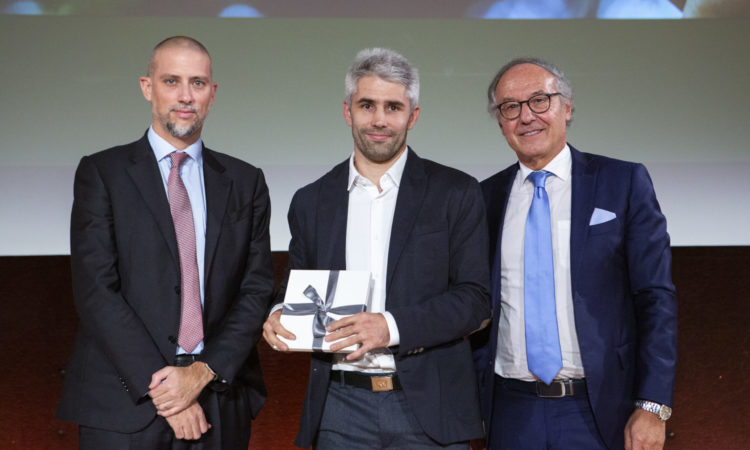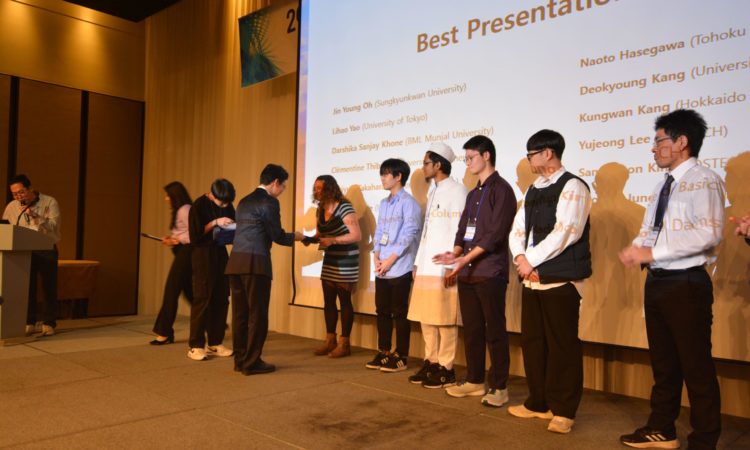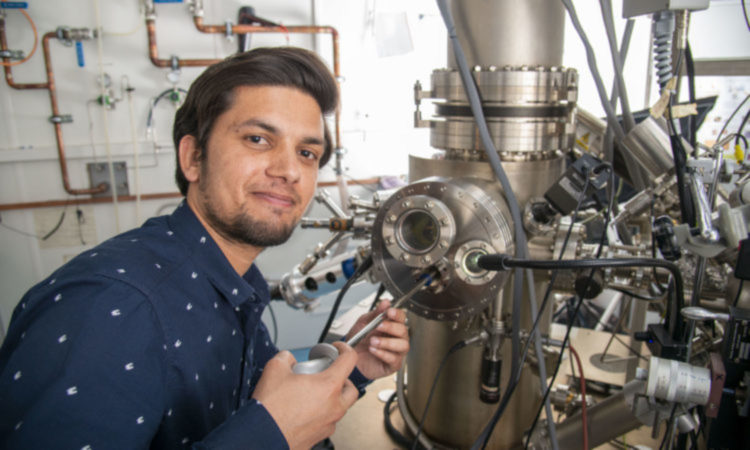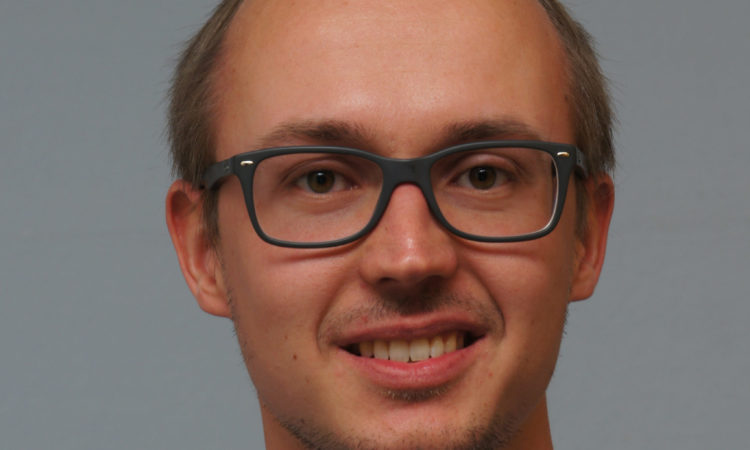Antoine Georges elected to the French Academy of Sciences – Interview
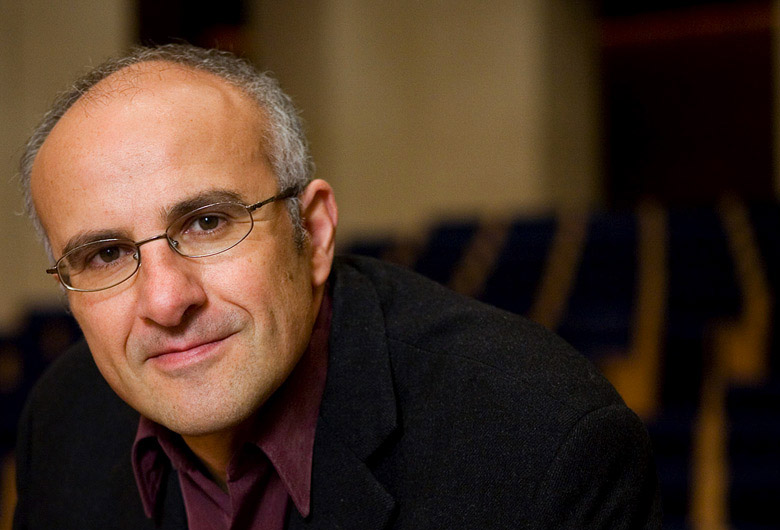
Congratulations to Antoine Georges, professor at the DQMP, at the Collège de France (chair of Condensed Matter Physics) and at the École Polytechnique (Palaiseau, France), who has been elected to the French Academy of Sciences.
His researches are focused on the physics of quantum systems with strong correlations in various contexts, from materials with strong electron interactions to cold atomic gases. During his career, he was awarded numerous prizes such as the Condensed Matter Europhysics Prize in 2006, the « Médaille d’argent du CNRS» in 2007 and The Hamburg Prize for Theoretical Physics in 2014. He is also a co-laureate of an ERC-Synergy grant. New members will be received at the “Coupole de l’Institut de France” on June 23, 2015.
Interview
Recently you have been elected as a new member of the French Academy of Sciences. What does this represent to you?
I feel very honored, of course. The `Académie des Sciences’ gathers truly remarkable scientists, and it is a bit intimidating to meet and work with these impressive colleagues…
It is also an opportunity to broaden one’s vision on the role that science and technology plays in society. It is one of the main missions of the Academy to promote science in all possible ways, but also to address the legitimate questions and concerns that citizens may have about it. And, last but not least, the Academy issues reports and statements on major issues (energy, climate change) and aims at establishing a bridge with the political decision-makers on these issues. In the future and time-permitting, I would be interested in contributing to this effort and thinking about these big questions that we often loose sight of in our specialized day-to-day research work.
During your carrier you received a lot of prizes and awards, does the fact of being an academician gives you new challenges?
Well, prizes and honors feel good, yes. Mostly, as far as I am concerned, because they carry the message that the science you do doesn’t go unnoticed and that perhaps what you do is worth it after all. As a researcher, I always feel unsecured and unsatisfied with questions such as: is this problem interesting enough? Or if it is, isn’t it too hard, will I ever be able to make progress or understand it? A prize tells you that perhaps you didn’t err too much on the wrong track, at least once in a while! That’s for the more personal or intimate feelings. On another level, prizes and distinctions gives you the collective responsibility to take a stand on some issues. At the present moment, I am very concerned about how difficult it is to be a young scientist today. There is enormous pressure about publishing a lot, getting competitive funding, getting a tenured job, etc… Life for young scientists is tough, tougher than what I went through at the same age. Some amount of competition is good, but having time and secure-enough jobs to think and work on important problems is crucial.
Can you tell us something about your research – we know you work on high-Tc superconductivity, what is your dream as a theoretician?
My current research deals with quantum systems which have many particles with strong interactions between them. That’s the common trait between all the topics I am currently working on. Often the system at hand is a solid with strongly interacting electrons, but sometimes it can also be a gas of ultra-cold atoms. I have developed new theoretical methods to deal with these systems. At the beginning, these methods were developed for very basic models (I’m a theoretical physicist by training after all!). But time passing, these methods proved useful to understand complex materials with an increasing degree of realism. These developments have been a blessing for me, because they gave me an opportunity to learn about the beautiful diversity of materials, and to get closer to experiments and even (at a modest level) to chemistry. Examples of such materials are transition-metal oxides, which display impressive collective phenomena and associated functionalities, such as superconductivity or metal-insulator transitions for example. The current challenge is very much about the control of these functionalities. Impressive progress in materials elaboration and also in addressing materials with advanced light sources is what makes this possible. The leading force that drives my field is materials, instrumental and experimental developments. Without them, theorists like me would be jobless!
You are a Professor at the Collège de France and at the University of Geneva. Is this double affiliation bringing new opportunities?
To this question, I answer with a big `yes’ and a big smile! The “Département de Physique de la Matière Quantique’’ is truly a wonderful department. There is a concentration of remarkable colleagues, each of them with recognized expertise worldwide, who investigate quantum materials with a wide range of complementary techniques. This creates a unique scientific environment – I cannot think of many places in the world which can stand the comparison. My research (as well as my lecturing at Collège de France, where you have to explore new topics every year…) has benefitted considerably from this environment. I have ongoing collaborations with a number of colleagues such as Felix Baumberger, Christophe Berthod, Thierry Giamarchi, Didier Jaccard, Jean-Marc Triscone and Dirk van der Marel as well as a number of junior researchers. I am extremely grateful to the Department and to the University of Geneva for giving me this opportunity, and for trusting me enough to judge that I could contribute something useful despite being involved only part-time. On top of all this, the atmosphere in the department on the human level is wonderful. What more can you ask for?
